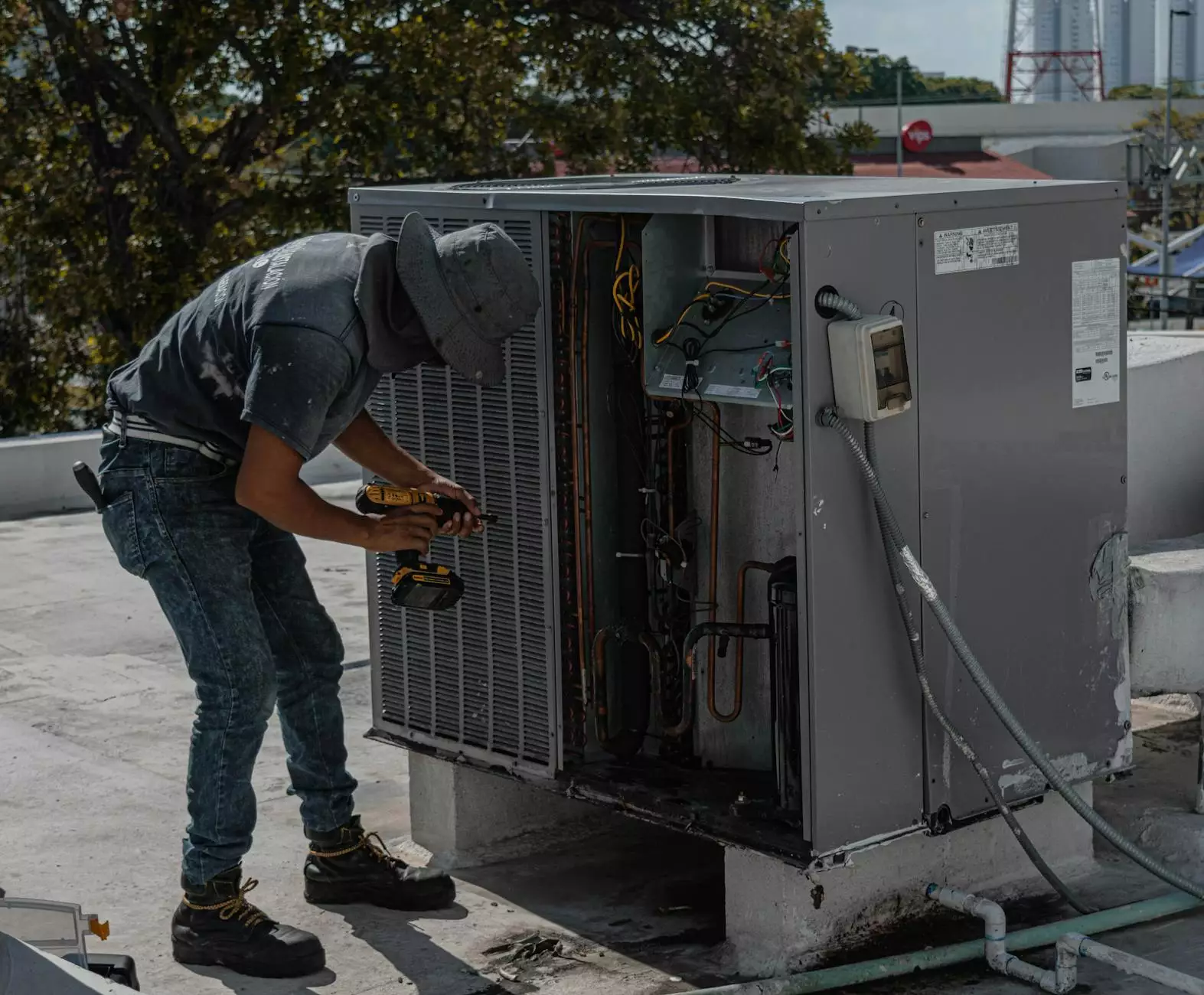Unlocking Comfort: The Ultimate Guide to Heating & Air Conditioning Solutions

In today's fast-paced world, ensuring a comfortable indoor environment is essential for both homes and businesses. Heating and Air Conditioning systems, commonly referred to as HVAC, play a pivotal role in achieving this comfort. This comprehensive guide will delve into various aspects of HVAC systems, including their functions, benefits, and maintenance, helping you to understand why investing in a quality system, such as those offered at https://dihaairconditioning.com/, can profoundly enhance your living or working environment.
Understanding HVAC Systems
An HVAC system is a technology that provides heating, ventilation, and air conditioning to residential and commercial buildings. These systems are crucial for maintaining indoor air quality and comfort.
Components of HVAC Systems
- Heating Unit: This can include furnaces, heat pumps, or boilers that warm the air or water and distribute heat throughout the space.
- Cooling Unit: Air conditioning systems cool down the indoor space by removing heat and moisture from the air.
- Ventilation: This aspect involves the exchange of indoor air with outdoor air to maintain indoor air quality and deliver fresh air.
- Thermostats: Smart thermostats help regulate the heating and cooling efficiently based on your preferences.
Benefits of Excellent HVAC Systems
Investing in a reliable https://dihaairconditioning.com/ HVAC system comes with a multitude of benefits, including:
1. Enhanced Comfort
A well-functioning HVAC system ensures that your indoor space is comfortable year-round, regardless of the weather conditions outside. Whether it's a scorching summer day or a frigid winter night, your HVAC system manages temperatures effectively.
2. Improved Air Quality
HVAC systems filter and ventilate the air, eliminating dust, pollutants, and allergens. This aspect is especially crucial for individuals with asthma or allergies, as it contributes to a healthier indoor environment.
3. Energy Efficiency
Modern HVAC technologies are designed with energy efficiency in mind. By utilizing optimized systems, property owners can significantly reduce their energy bills while minimizing their environmental footprint.
4. Increased Property Value
Having a top-notch HVAC system can enhance the resale value of your home or business. Potential buyers often look favorably upon properties equipped with reliable & efficient heating and cooling systems.
Choosing the Right HVAC System
When it comes to selecting an HVAC system, various factors should be considered to ensure that you make the right choice for your needs:
1. Assess Your Space
Evaluate the size of your home or business. Larger spaces may require more extensive systems or multiple units for balanced heating and cooling.
2. Consider Energy Efficiency Ratings
Look for HVAC systems that offer high SEER (Seasonal Energy Efficiency Ratio) and AFUE (Annual Fuel Utilization Efficiency) ratings. The higher these ratings, the more efficient the unit will be.
3. Explore Different Types of Systems
Familiarize yourself with the various types of HVAC systems, such as:
- Central Air Conditioning: Efficient for large homes, providing cooling through ductwork.
- Heat Pumps: Versatile units that can both heat and cool, promoting energy savings.
- Ductless Mini-Split Systems: Useful for homes without ductwork, allowing personalized zoning.
4. Consult with Professionals
Seek advice from HVAC professionals, such as those at https://dihaairconditioning.com/, who can assess your specific needs and recommend suitable solutions.
Installation Process of HVAC Systems
Installing an HVAC system is a complex process that requires precision and expertise. Here’s a step-by-step overview of what you can expect during the installation:
1. Initial Consultation
A qualified technician will assess your property, discuss your needs, and determine the best HVAC options for you.
2. System Selection
Based on the consultation, the technician will recommend the appropriate HVAC system that fits your space, energy needs, and budget.
3. Installation of Ductwork (if applicable)
If you opt for a central system, the installation will include setting up the necessary ductwork to ensure efficient airflow.
4. Installing the Unit
The heating and cooling units are installed according to the manufacturer’s guidelines to ensure optimal performance.
5. Testing and Finishing Touches
Once installed, the system is thoroughly tested for leaks, airflow, and temperature regulation to guarantee it meets comfort expectations.
Maintenance of HVAC Systems
To prolong the lifespan of your HVAC system, regular maintenance is crucial. Here are some essential maintenance tips:
1. Change Filters Regularly
Replacing or cleaning filters every 1-3 months helps maintain airflow and efficiency, while also improving air quality.
2. Schedule Annual Inspections
Hire professionals from https://dihaairconditioning.com/ to conduct annual inspections, ensuring that your system operates efficiently and safely.
3. Clean Condenser Coils
Ensure the outdoor unit remains clean and free of debris for efficient heat exchange.
4. Check Thermostat Settings
Confirm that your thermostat is functioning correctly and is set to optimal temperatures for efficient use.
Conclusion: The Importance of Quality HVAC Systems
In conclusion, a top-quality HVAC system is more than just a luxury; it is a necessity for any home or business looking to create a comfortable and healthy environment. By understanding the benefits, selecting the right system, and ensuring proper maintenance, you are investing not only in your comfort but also in your property's long-term value. Reach out to professionals at https://dihaairconditioning.com/ today to explore how you can best meet your heating and air conditioning needs.









